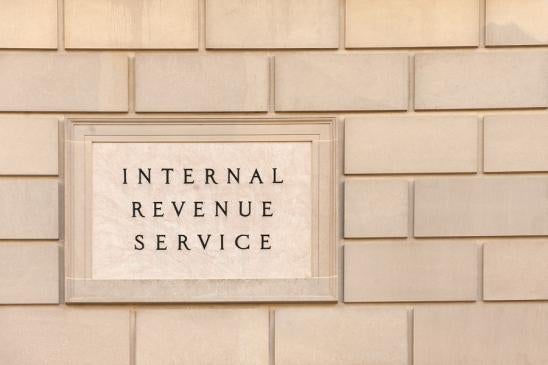On Wednesday, May 10, 2017, the Internal Revenue Service (IRS) Large Business and International Division (LB&I) hosted a webinar with the Association of International Certified Professional Accountants (AICPA) regarding LB&I’s recently-announced campaigns targeting inbound distributors and taxpayers who either were declined by, or withdrew from, the IRS’s Offshore Voluntary Disclosure Program (OVDP). Our previous coverage of LB&I’s campaign initiatives can be found here. The slides from the presentation are available here.
Inbound Distributors
As described by the IRS, this campaign is intended to address transfer pricing in the context of United States distributors of goods sourced from foreign-related parties that may have reported gains or losses that are not commensurate with the functions performed and the risk assumed.
As discussed in Wednesday’s webinar, this campaign is somewhat unique in that the IRS is still evaluating whether this issue presents an actual—rather than a mere potential—threat of noncompliance. The IRS has identified a series of returns to be sent into the field for examination, but is currently holding them to evaluate whether a genuine threat of noncompliance exists. The IRS also stated that the campaign is being designed to allow for flexibility to release returns quickly, if compliance can be readily ascertained.
IRS officials explained that this campaign is intended to impact the “mid-market” segment, which is ill-defined within the IRS organizational structure. These are businesses with revenues of $10 million or higher but which are not currently audited within the IRS’s Coordinated Industry Cases (CIC) program.
The selection of returns for this campaign, at present, has not been based upon new Country-by-Country Reporting requirements under Base Erosion and Profit Sharing (BEPS) and the new IRS Form 8975, which has not been filed yet by many taxpayers. Importantly, participating IRS officials offered that the Form 8275 is intended to be used “strictly for high level risk assessment” and “not as a basis for any sort of transfer pricing adjustment.”
A question was raised regarding the role of taxpayers’ transfer pricing documentation in potential campaign examinations. The IRS stated that this documentation will be reviewed in individual exams, and examination agents are to be trained to understand the business model of the examined taxpayer and the work the taxpayer has done up front regarding transfer pricing.
OVDP Declines/Withdrawals
The IRS also clarified a misperception about its new campaign related to the Offshore Voluntary Disclosure Program. This campaign is intended to address two types of cases: (1) taxpayers rejected from participation in the OVDP at preclearance (declines), and (2) taxpayers who voluntarily withdrew from the OVDP process prior to formal acceptance into the program (withdrawals). The campaign does not address two similar types of cases—opt-outs, where a taxpayer voluntarily chooses to resolve a case with the IRS outside the OVDP, and removals, where the IRS removes a taxpayer from the OVDP after his/her formal acceptance into it.
The IRS estimated the number of affected taxpayers in this campaign, at present, exceeds 6,000. These taxpayers have essentially self-identified through their efforts to enter the OVDP; the IRS has not identified these taxpayers through Foreign Account Tax Compliance Act (FATCA) reporting or other third-party sources at this stage.
There will not be a focus on US-based or non-US-based taxpayers. The IRS clarified that the campaign will be focusing on taxpayers who have both unreported income related to foreign accounts and issues with non-filing of offshore information returns, rather than focusing on taxpayers whose only issue is delinquent filing of offshore information returns.
The campaign will explore three major options for covered taxpayers: (1) taking no action, for taxpayers who have voluntarily come into compliance on their own; (2) examination, for taxpayers who have not; and (3) a “soft letter” program for taxpayers who may have non-compliance issues that are “immaterial.” The IRS explained that prospective compliance alone is likely not enough for a no-action determination; the IRS will be looking at compliance for all years for which there is an open statute of limitations. Regarding soft letters, there is no set standard for materiality; there will be no streamlined audit process or de minimis dollar-threshold, and each case will turn on its own facts and circumstances. The soft letters will require taxpayers to take action by filing returns or making payments; they will not simply be warning letters. It is possible that these cases will be referred back to the Criminal Investigation Division when in exam.
Campaigns as a Whole
LB&I has set internal performance metrics for each of the campaigns that have been announced, and will be monitoring each of them to evaluate their success.



 i
i

